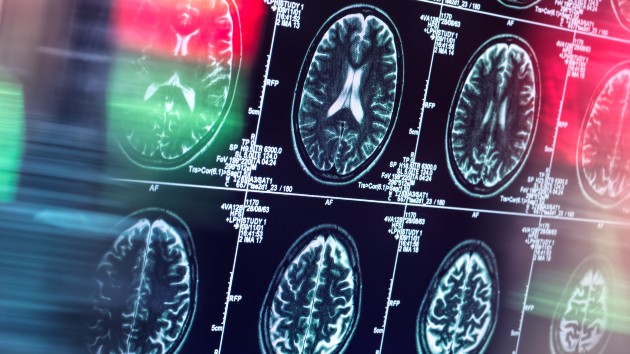(NEW YORK) — Elon Musk announced that his company Neuralink implanted a brain chip in a human in a preliminary clinical study. If research studies continue to look promising, devices like these could one day be a “game changer” for people with limited motor function, experts told ABC News.
Neuralink says its goal is to help people living with debilitating conditions, including paralysis, communicate and control external devices with their thoughts.
The patient who received the implant is “recovering well,” Musk said in a post on X Tuesday.
Musk’s company is not alone in developing this type of technology. In recent years, research teams from across the globe have announced early but promising studies of brain-machine interface devices.
Here’s what else to know about Neuralink:
Neuralink’s implant
Neuralink was founded in 2016 by Musk and a team of scientists and engineers. The company says its mission is to “create a generalized brain interface to restore autonomy to those with unmet medical needs,” according to its website.
The company says its device can interpret neural activity so a person can operate a computer or smartphone by simply thinking.
People paralyzed from a stroke, a traumatic brain injury or a spinal cord injury could see the benefits, the company says.
“This would be a major game changer if it could be proven to be safe and effective,” Dr. Leah Croll, a neurologist and assistant professor at Temple University, told ABC News.
Human trials after animal testing
The FDA approved Neuralink for human trials in May after years of testing on animals.
The company has previously demonstrated the ability of the implant to stimulate movement in pigs and monkeys, even demonstrating a monkey with a brain chip playing a video game.
Musk said the first human users will be those who lost the use of their limbs.
“Imagine if Stephen Hawking could communicate faster than a speed typist or auctioneer, that is the goal,” Musk said.
Science fiction into reality
Neuralink’s engineers aren’t the only ones exploring this emerging science.
Last year, Swiss researchers said they combined artificial intelligence and brain and spine implants to help a man paralyzed in a motorcycle accident walk again.
And a woman who had lost her voice to paralysis was able to have a conversation with her husband again, with the help of a mind-controlled avatar, the Swiss researchers said.
“I really do think that in my lifetime as a physician I’ll be able to use this type of technology to help my patients and I cannot wait for that day to come,” Croll said after Musk’s announcement Tuesday.
Copyright © 2024, ABC Audio. All rights reserved.












